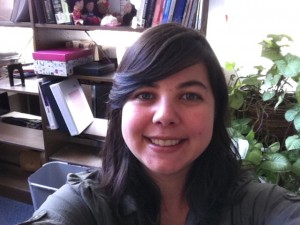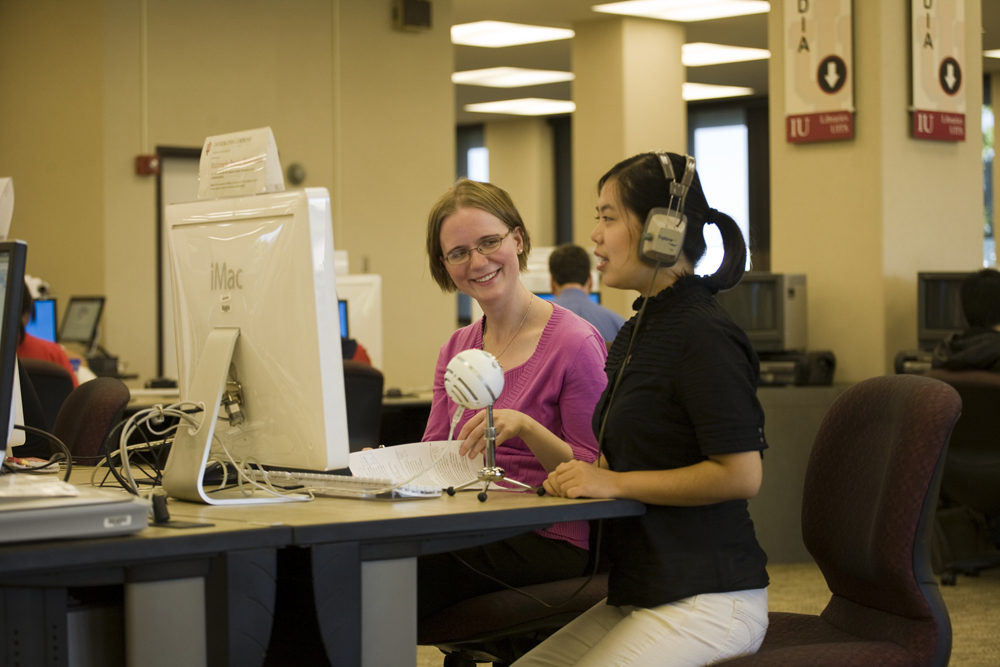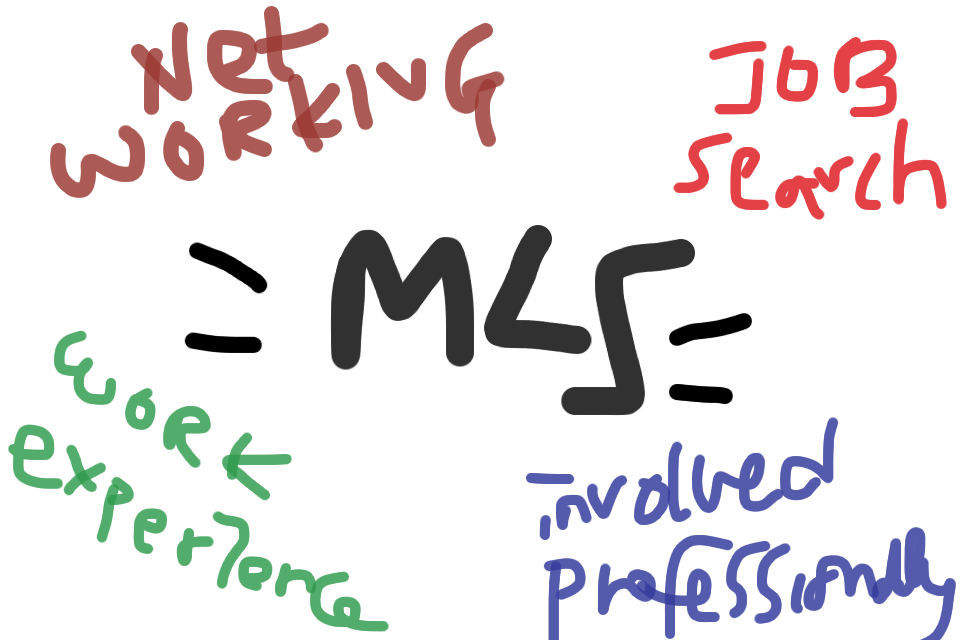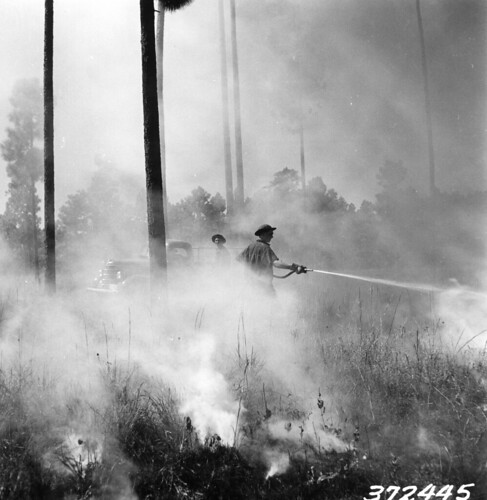For the third and the last post of the Interview with Brand-new Librarians series, I interviewed Laura O’Brien. Laura graduated from Simmons Graduate School of Library and Information Science in May, 2009. Laura had completed her eight months’ of job search for the first professional librarian position a week before the ALA 2010 Midwinter where I met her first-time. She is now a Research and Instruction Librarian at Wellesley College and tweets as @niathena. I wanted to find out how she continued to stay optimistic and persistent throughout her job search since eight months after graduation can be a very challenging and trying time to endure to any job-seeking MLS graduate.
In the interview below, Laura shares her experience in a tough job market and explains how she utilized her previous work experience in the for-profit education industry to her best advantage. She advises LIS students be strategic about their learning and take responsibility for their own development as professionals and says “even a long job search (and one with certain detours) can be successful, so keep at it—the right thing will come along if you’re prepared.â€
 1. Who are you and what do you do?
1. Who are you and what do you do?
My name is Laura O’Brien, and since February 2010 I’ve been employed at Wellesley College, just outside Boston, as a Research and Instruction Librarian.
Before I entered the academic library world, I was part of the (gasp!) for-profit education industry. I ran a K – 16 tutoring center for two and a half years, and collaborated with the founder of the company to build a successful in-school tutoring program. That experience developed my language for instruction and inspired me to explore librarianship as a means of developing creative and effective ways to teach critical thinking skills.
2. When did you get your MLS, when did you start your first professional librarian position, how long did the job search take, and how did you prepare yourself for it?
I received my MS in Library and Information Science from Simmons College in May 2009. I pursued my degree full-time over two years, while working initially one, then two part-time academic reference and instruction positions, gaining valuable experience in information literacy instruction and research assistance with a variety of student groups, including first-generation college students, adult students, and ESL students.
As a post-grad I knew I needed to stay active to give myself more opportunities to develop my skills and establish myself as a professional and attractive candidate to potential employers. I sought out as many useful professional development opportunities as possible, even if I had to pay my own way to attend a conference I was interested in. Fortunately, many regional or statewide professional organizations have quality programming for a lower fee than ALA, and many reduce rates even further for student members. I also joined non-library professional organizations related to my technology and academic interests, and volunteered as an instructor with ESL adult learners.
When the time came to start my job search, hiring freezes and “depending on funding†positions were an unfortunate fact of the academic job market. While I was lucky enough to continue on at one of my pre-professional positions, I encountered many discouraging setbacks in the hunt for professional employment. There was, for example, the memorable instance where a previously offered job vanished into thin air. It goes without saying—that was an exceedingly trying week. There was validation of a kind (if not the kind that came with a salary) in knowing that I’d done everything right. I stayed motivated and redoubled my efforts. In hindsight, the rescinded job offer was a blessing in disguise as in January 2010 I was offered an even more exciting opportunity with Wellesley College, eight months after earning my MLS.
3. How did you do your job search? What were some of the things that worked and didn’t? What was the greatest challenge?
To keep my job search focused, I created a list of criteria I’d built for the position I was looking for–much like a job posting, this list of criteria broke down into Required and Desirable categories. This was really helpful for evaluating prospects from the list of open positions scrolling through my RSS feed reader.
Throughout the week I drafted application materials and followed up with a once-a-week meeting with a friend (who had worked in academia, but was not a librarian). This was a second or third pair of eyes to review each cover letter, but it was also a precious motivational tool, allowing me to take weekly stock of progress and evaluate my job search objectively.
In my experience, sending a template cover letter and unedited resume or CV was worse than a waste of time. Instead, I kept a file of my previous applications, with notes on each application’s progress. (I also saved the job posting in a separate file, since institutions sometimes take a posting down once they have reached the late interview or job offer stage with candidates.) This gave me a library of material to work from when customizing a cover letter for a particular position. I suspect that most search committees—at least, search committees at institutions I would want to work for—can smell the lack of effort and interest shown by a boilerplate application.
The Career Education Center at my LIS program offered workshops for the librarian job hunt, resume/CV and cover letter review, and most useful of all, mock interviews. Since this was my first foray into the academic hiring process, I took advantage of all of these, but mock interviews were key, particularly before the dreaded phone intervie w. It’s difficult to attain a level of comfort when answering tough questions with three to eight people in a conference room on the other end of a phone line, but practice, and feedback from a career counselor, does wonders.
Despite the length of my job search, I feel as though it was objectively pretty successful. I achieved about a 40% response rate on my applications, my phone interviews netted me a second round interview 2/3 of the time, and I received several job offers that I was able to choose from for the best fit.
4. Is your work as the professional librarian what you expected and prepared yourself for while you were in the MLS program? Otherwise, what would you have done differently if you knew?
I knew that my interests lay in reference and information literacy before starting my MLS. I did informational interviewing with academic librarians and started working as soon as possible in academic libraries to get a good grasp of what classes, technologies, and skills would be the most helpful to me in a professional position.
Beyond the core curriculum, I took reference courses in fields of study outside my own academic background (which was in English literature and history), technology courses, and an instruction course that gave me experience in lesson and program planning in a library setting. I really encourage LIS students to be strategic about their learning and take responsibility for their own development as professionals.
The work I do today—planning instruction at the classroom and the program level, implementing instructional technologies, building relationships with and supporting the research of students and faculty—is very much what I’d prepared myself for as an MLS candidate. I would have loved the opportunity to branch out further in my classwork to explore more technologies and types of librarianship such as special collections, since these are areas I work closely with at Wellesley. However, one of the great things about my position is that collaboration and learning are strongly encouraged, so I have the opportunity to participate in projects that expand my knowledge.
5. Any advice for many MLS students who will be soon graduating and looking for their first professional librarian position?
Don’t hesitate to call yourself and the work you do “professionalâ€. Just because your work experience took place prior to obtaining your degree doesn’t make it any less valuable or any less a representation of how you can contribute to a potential employer.
Don’t discount non-library work experience. It can be what makes you unique and desirable. For me, the key was to make it clear to employers how my skills as an administrator and educator in a for-profit industry could and did transfer to fulfill their needs. That being said, if you plan to work in libraries (or information technology or any related field) the job search will be considerably easier if you have work experiences in those areas prior to graduation.
Finally, even a long job search (and one with certain detours) can be successful, so keep at it—the right thing will come along if you’re prepared.













